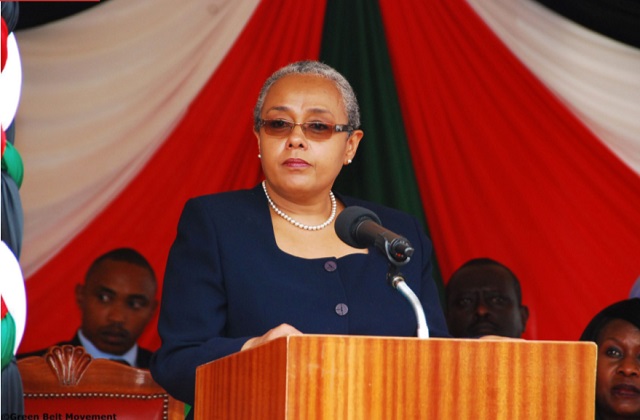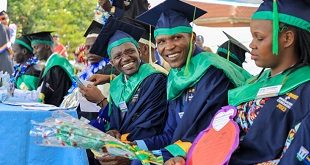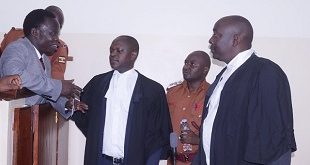
Patriarchy still rules
Despite the political experience, ambitions and influence of the First Ladies, the researchers found that the three women remained subordinate to the patriarchy in their societies. In fact, a few gender biases were evident.
One was in expectations of the role of the First Lady. They were expected to be spouse, mother, caregiver and nurturer of the sick, young and elderly. Another was that the Offices of the First Lady were fully directed from within the President’s office. This meant that the flow of information about them was skewed to project that as the ideal woman, trophy and a trailblazer for issues stereotyped and associated with women.
In addition, none of the constitutions of the countries the researchers examined referred to the position of First Lady.
This, in the researcher’s view, reflects an impression that the role is not important – because it is, by and large, held by women. It also undermines democratic accountability.
“We believe there should be constitutional clarity and accountability – which would herald accountability – on the formal role, powers and functions of First Ladies,” the researchers say.
Tanzania’s First Lady Janeth Magufuli is typical. According to one report, she is “invisible”. She is a primary school teacher for more than 20 years.The report claims in Tanzania, some people have to think hard about who the first lady is exactly although she campaigned alongside her husband John Magufuli in the run-up to his election in 2015 and was by his side when he was inaugurated. When asked why the First Lady has remained out of the public eye since, President Magufuli has publically stated that as his wife, she has to be in the kitchen to cook for him.
Margaret Gakuo Kenyatta is another exemplar. She became Kenya’s first lady in April 2013 and in 2014 founded the `Beyond Zero initiative’ through which she advocates for better healthcare for women and children. To some she appears shy and perhaps timid but others say her charisma contributed to her husband’s success. She is known as President Uhuru Kenyatta’s “powerhouse” – his friend, partner and supporter. Many Kenyans see her as a role model and like her down-to-earth nature. The United Nations named her Kenya’s Person of Year.
But some First Ladies such as Aisha Buhari, Nigeria’s First Lady since May 2015, have gained a reputation as a bold and serious person. She is a cosmetologist and beautician with a degree in public administration and a master’s degree in international affairs and strategic studies known to challenge those in power. Many regard her as the first to take her official role seriously where her predecessors were considered rude, arrogant or power drunk. But when she in 2016 she announced that she was considering not supporting her husband President Mohammadu Buhari’s re-election bid, she shocked the nation.
The Buharis are from the north of Nigeria, where it is not really culturally acceptable for a woman to criticise her husand, let alone challenge him in public.
Many were more comfortable with her role as head of the humanitarian project `Future Assured Program’ that aims at improving the wellbeing of Nigerian women, children and adolescents through better health, education and economic empowerment.
She said publicly that her husband’s government had been “hijacked by a few individuals”.
The president shot back saying he had “superior knowledge over her” and that “she belongs to my kitchen and my living room and the other room.”
Another very powerful First Lady is Mary Ayen Mayardit of South Sudan who is a major general in the army. The wife of President Salva Kiir is not highly educated but is seen as a committed liberation fighter from the 21-year struggle for independence from Sudan and is regarded as having influence over decisions that determine the fate of the fledgling country.
Ayen, or Mama Mary Ayen as she is known, however, draws mixed reactions. Although she often keeps a low public profile, she has been accused of fueling and profiting from the conflict in South Sudan and is credited with having pressured Kiir into signing the peace deal his arch-rival Riek Machar.
****
 The Independent Uganda: You get the Truth we Pay the Price
The Independent Uganda: You get the Truth we Pay the Price



Thank you for publishing our research which is based on the African First Ladies Database (@FirstDatabase) and compiled by Jo-Ansie van Wyk, Chidochashe Nyere and Arina Muresan. We welcoime any comments on our research.